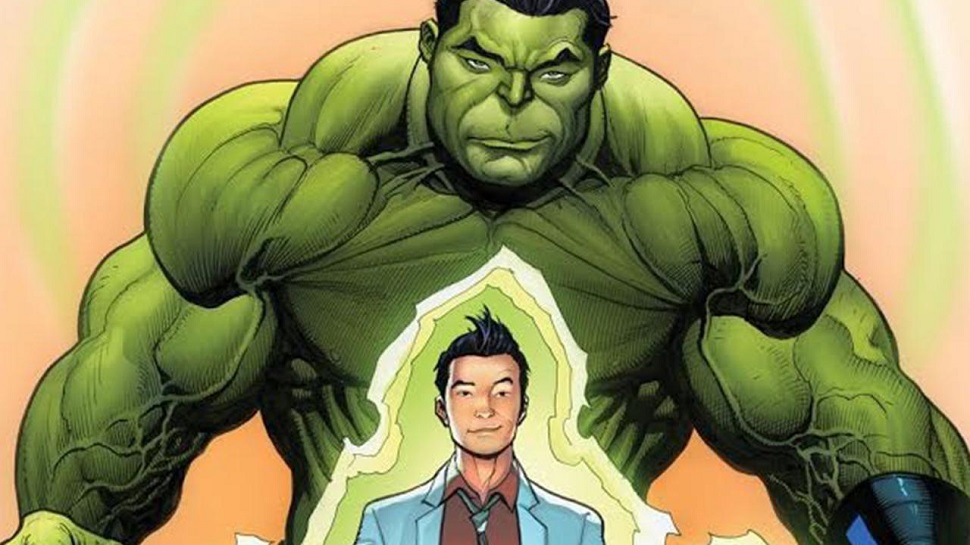The world of comics is no longer dominated by white males.

Kamala Kahn, Muslim Superhero
By Courtney Eu
Whether you are a Captain Marvel fan or Hulk fan, the idea of a white male hero is clear. There have been decades where most of the comic books have been dominated by white men, whether superheroes like Superman and Batman, a misfit like Hulk or Wolverine, or a kid growing up like Archie. The majority of comic books portray homogenous people and only offer one type of narration.
But, that is changing. Recently, there has been a big push to diversify comic books so that different readers can connect to characters more like themselves. Over the past couple of years, Marvel comics, which is owned by the Disney Corp., has released many new superheros, such as an Afro-Latino Spiderman, a Muslim Ms. Marvel, a female Thor, a gay Iceman, a Korean Hulk, an African-American female lead in Iron Man, and a lesbian Latina-American Chavez.
Disney has had huge success with Marvel comics, amination and TV series and the whole Marvel studios itself. Forbes says that has been more successful than DC Comics — the home of Superman, Batman and Wonder Woman — which is owned by Warner Bros Entertainment, because Marvel understands what people loved about their comic books.
Comic books are successful when they allow people to be transported into another world. This world of the white male superhero is well known by companies like Disney’s Marvel Studios, who have successfully sold millions of comics with this formula. However, whether this change to diversity hs been welcomed or not, male dominance and superiority in comics is over.
As reported by Market Watch, at the last New York Comic-Con several comic book sellers reportedly did not like the change they were seeing and blamed the loss of sales of comic books to the rise in diversity. Unlike most books, comic books are mostly sold through specialized store, so they are heavily dependent on this one source of income.

Superhero Chavez, Latina Lesbian
Based on data from comichron.com, a website for comic research, the comics that sold the most so far this year are Marvel comics and DC comics which fit the male superhero formula. Many social media channels have voiced their opinion about the increase in diversity of characters, and many have not liked this change.
Comic books are big business but the “total comic book and graphic novel Direct Market sales in February 2018 took at nearly 8% dip in dollars and a nearly 20% dip in units compared to February 2017.” Right now, “there’s a struggle going on over what a comic book is and who the audience should be” said ICv2 President Milton Griepp in an interview with Market Watch.
Many fans have left the comic book world because they feel the new characters are politicizing the comic books. This could be connected to the drop in sales, but there could be other reasons too. One possibility is that the new story lines could be less interesting compared to the old comics.

Korean Hulk Superhero
They are not transporting people into a fantasy world and possibly not connecting to a growing diverse audience. But diverse superhero movies featuring people of color have been hugely successful recently. Marvel’s Black Panther topped $1.1 billion dollars worldwide and has passed other superhero movies like the Transformers and Skyfall. Wonder Woman also did extremely well grossing $412.6 million dollars, and prior to Black Panther was the highest-grossing superhero movie.
Diversity is a big topic today and book publishing companies are at risk of losing their old more traditional fan base. On the other hand, they may push away a younger fan base if there is not diversity.
Sheena Howard, an Associate Professor of Communications at Rider University, and the author of the Encyclopedia of Black Comics, argues that diversity does not hurt sales; Maybe there has been a drop in sales for comic books, but diverse superheroes are not the problem.

Gay Iceman
A single issue of the Muslim Ms. Marvel has been a bestseller since the Muslim Ms. character came out in 2014, Market Watch reported. Also many diverse superheroes have been on the New York Times Young Adult Hardcover Best Seller List for several weeks over the last couple of years.
John Jackson Miller, an author who also maintains comichron.com, a website that exhaustively tracks comic book sales, says that if one actually looks at sales over time, there is no evidence of a sale decline and that people should not look at month to month sale projections.
Many readers do appreciate this change towards diversity. Regine Sawyer of the Women in Comics Collective said to Market Watch, “we have been reading books by white men for years, and we have been enjoying it. But we have a story too.”
New comic readership is still growing and these readers are not stuck on wanting the old heroes. NPR reports that there is a quickly growing readership demographic of new comic readers of women ages 17-33. A comic book reader, Lisa Fumia, said to NPR, “I am a mixed women… so I would like so see more people of color, and more people ho look like me or that I can at least somewhat identify with. I think that’s important.”
